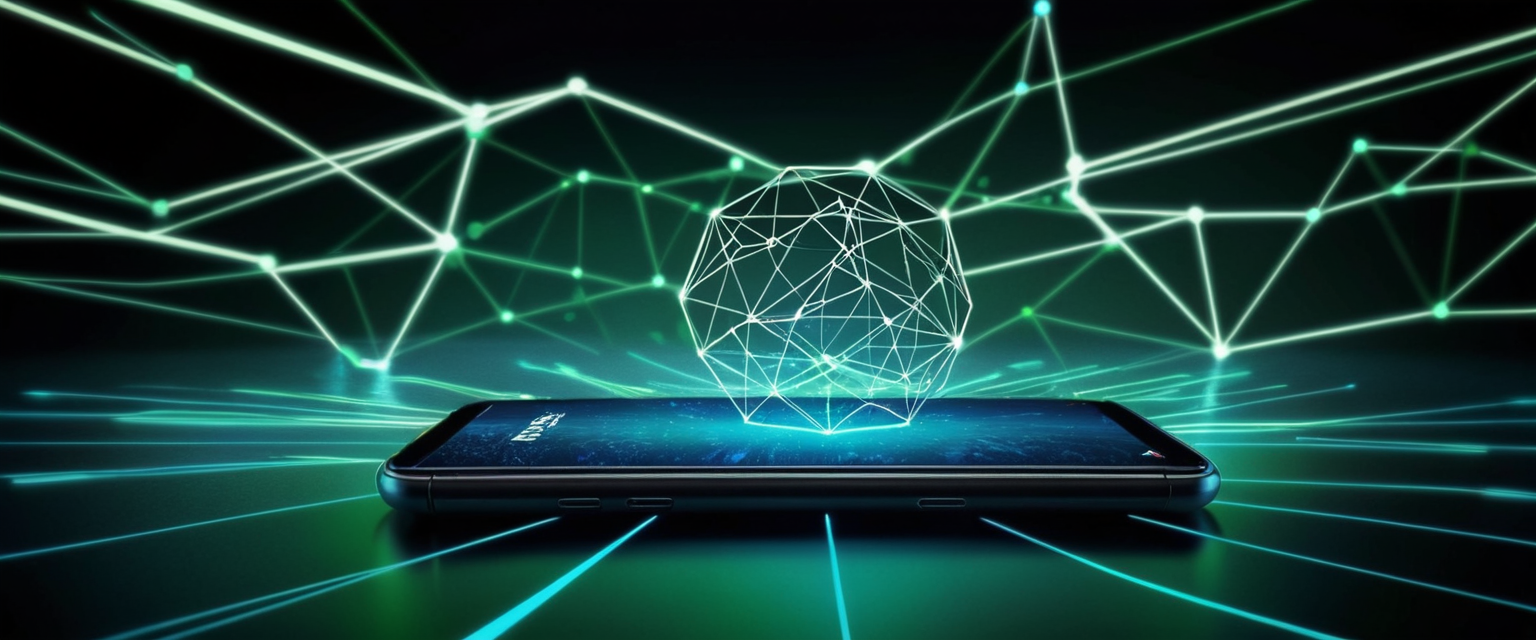
The Virtual Private Network market for iPhone users in 2025 presents a complex landscape of options ranging from completely free services to premium paid alternatives with risk-free guarantees, each offering varying levels of security, speed, and functionality tailored to different user needs and concerns regarding online privacy and data protection.
Understanding Virtual Private Networks and Their Role on iPhone
Virtual Private Networks have become increasingly important tools for iPhone users seeking to enhance their online privacy and security in an era of heightened digital surveillance and data collection. A VPN functions by creating an encrypted tunnel for data transmission, effectively masking a user’s Internet Protocol address and replacing it with the VPN provider’s IP address, thereby obscuring the user’s true location and online identity from internet service providers, website operators, and potentially malicious actors on public networks. The fundamental technology behind VPN operations involves the interception of all internet traffic from an iPhone and routing it through secure servers located in various geographic jurisdictions, where the data is encrypted using military-grade encryption standards.
The question of whether VPN services are actually necessary for iPhone users has generated considerable debate within the technical community. Some security experts argue that iPhones already incorporate robust end-to-end encryption for web traffic through HTTPS connections, and that additional VPN protection may be redundant for standard browsing activities. However, other cybersecurity professionals contend that VPNs provide essential protection on public WiFi networks where unencrypted data transmission remains vulnerable to interception, and they also enable users to access geo-restricted content that their physical location would otherwise prevent them from viewing. The reality lies somewhere in between these perspectives, with VPNs proving genuinely valuable for specific use cases while potentially offering limited benefits for routine browsing within secure networks.
Jurisdiction matters significantly when considering VPN services for iPhone, as the country where a VPN provider is legally based determines which laws and surveillance regulations apply to the service. VPN providers located in the Five Eyes countries (United States, United Kingdom, Canada, Australia, and New Zealand) face potential legal obligations to cooperate with government data requests and may be subject to mandatory data retention laws. Conversely, providers headquartered in privacy-friendly jurisdictions like Panama, Switzerland, or Romania operate under significantly different legal frameworks that may better protect user privacy from government surveillance. This jurisdictional consideration has led many reputable VPN companies to establish their legal operations in countries with strong privacy protections and no mandatory data retention directives.
The Landscape of Free VPN Services for iPhone in 2025
The market for free VPN applications available through Apple’s App Store has expanded dramatically, offering iPhone users numerous options for zero-cost privacy protection. However, this proliferation of free VPN options masks significant quality disparities and legitimate security concerns that require careful evaluation. Research conducted by Zimperium zLabs examining 800 free VPN applications across Android and iOS platforms has revealed systemic security and privacy failures affecting a substantial portion of the market. These findings indicate that many free VPN apps request excessive permissions beyond their core functionality, utilize outdated code with known vulnerabilities, and may expose users to surveillance-level risks comparable to malware infections.
The fundamental business model challenge facing free VPN providers explains many of these security shortcomings. Unlike paid services sustained through subscription revenues, free VPN applications must generate income through alternative mechanisms, which frequently involves collecting and monetizing user data, displaying aggressive advertising, or incorporating tracking mechanisms. The axiom “if you’re not paying for the product, you are the product” applies particularly forcefully to free VPN services, where user data and behavioral information represent the actual commodity being sold to advertisers, data brokers, and potentially government entities. A significant number of free VPN applications have been identified as secretly owned by Chinese entities, with at least 13 such applications continuing to operate on Apple’s App Store as of September 2025, raising serious concerns about data being routed through servers under Chinese government control and subject to Beijing’s strict information-sharing laws.
Despite these systemic concerns, certain legitimately trustworthy free VPN services do exist and can provide genuine value for iPhone users with appropriate expectations regarding limitations and intended use cases. These superior free options typically operate as freemium services supported by premium subscription revenue, meaning the company maintains financial incentives to build and maintain quality free offerings that convert users to paid plans rather than exploiting free users. The distinction between predatory free VPN services designed primarily to harvest user data and legitimate freemium services offering genuine privacy protection represents the critical dividing line that determines whether a free VPN represents a reasonable privacy tool or a security liability.
Top-Performing Free VPN Services for iPhone
PrivadoVPN Free: The Best Overall Free VPN Option
PrivadoVPN Free emerges from comprehensive testing as the highest-performing option among free VPN services available for iPhone, combining impressive speed capabilities with genuine privacy protections and legitimate streaming functionality. The service provides users with access to servers located in 10 countries with 13 total server locations, and most remarkably for a free service, delivers measurable speeds that match or exceed many premium VPN providers, consistently achieving speeds around 950 Mbps during testing. PrivadoVPN Free’s most distinctive feature for a free tier VPN involves its ability to reliably unblock Netflix and other streaming platforms, a capability that most other free VPNs simply cannot match.
The service imposes a 10 GB monthly data limit for full-speed usage, after which connections are restricted to a single 1 Mbps location, though users can continue accessing the VPN indefinitely rather than being cut off entirely. This represents a far more generous approach than most competitors who simply terminate access upon reaching data limits. PrivadoVPN Free includes useful security features such as split tunneling functionality, allowing users to specify which apps route through the VPN while others connect directly to the internet, though the absence of a comprehensive no-logs audit represents a notable limitation. The iOS app interface proves straightforward and user-friendly, with a prominent quick-connect button and clean design that appeals to both technical and non-technical users seeking simplicity.
Proton VPN Free: Best for Unlimited Data Usage
Proton VPN Free distinguishes itself as the only legitimately trustworthy free VPN service offering completely unlimited data for free users, an exceptionally rare feature that fundamentally changes the value proposition for individuals requiring ongoing VPN protection. The service provides access to servers in only three countries—United States, Netherlands, and Japan—representing a significant geographic limitation compared to competitors like PrivadoVPN Free. However, Proton VPN Free makes up for this limitation through superior privacy credentials that include a strict independently audited no-logs policy, open-source application code available for security researchers to audit for vulnerabilities, and a commitment to operating from Switzerland, a jurisdiction with exceptionally strong privacy protections.
Proton VPN Free features a sophisticated kill switch mechanism that instantly disconnects the device from the internet if the VPN connection unexpectedly drops, preventing unencrypted data from leaking across insecure networks. The service provides automatic server assignment rather than allowing users to manually select preferred locations, a design choice that simplifies the user experience for non-technical users while potentially compromising some flexibility for advanced users. Performance testing reveals that Proton VPN Free maintains respectable download speeds with only 13% speed reduction on average, and upload speeds decrease by approximately 7.45%, representing genuinely fast performance for a free service. The application provides no advertising within the free version—an increasingly rare feature among free VPNs—and maintains compatibility with both WireGuard and IKEv2/IPSec protocols for users desiring modern, efficient encryption standards.
The primary limitation affecting Proton VPN Free involves its inability to reliably access streaming services like Netflix, BBC iPlayer, or Hulu, making the service unsuitable for users whose primary objective involves bypassing geographic content restrictions. Additionally, the free plan limits users to single-device connections and connection to only one device simultaneously, though this represents a standard restriction across most free VPN services.
Windscribe Free: Comprehensive Features with Generous Server Options
Windscribe Free provides users with access to servers across 11 countries with 14 total server locations, representing superior geographic diversity compared to Proton VPN Free’s three-country limitation. The service offers unlimited simultaneous device connections on its free tier—an unusually generous feature that remains uncommon even among premium VPN services—allowing users to protect every device in their household with a single subscription. Windscribe Free provides a 10 GB monthly data allowance at full speeds, matching PrivadoVPN Free’s generous allocation, with the capability to continue using the service beyond this limit with degraded performance rather than complete termination.
The service implements an interesting permission system allowing users to create an account without providing an email address, enhancing privacy during the signup process, though providing an email address increases the free data allowance from 2 GB to 10 GB. Windscribe Free includes access to R.O.B.E.R.T., an advanced DNS-based browsing protection system that blocks malicious websites, advertisements, and tracking mechanisms, with testing indicating it successfully blocks approximately 46% of known malicious sites—performance that exceeds many commercial antivirus applications. The service supports both ChaCha20 and 256-bit AES encryption depending on protocol selection, both representing cryptographic standards that are effectively impossible to compromise through brute-force attacks.
However, Windscribe Free exhibits notable performance inconsistencies, with apps that lack the polish and intuitiveness of competitors like Proton VPN Free, potentially frustrating users unfamiliar with VPN configuration options. The service’s 10 GB monthly data limit can be restrictive for heavy users, and once exhausted, connectivity terminates completely rather than merely degrading to slower speeds. Similar to most free VPN services, Windscribe Free fails to reliably access Netflix and other streaming platforms, limiting utility for content-access use cases.
Atlas VPN and Other Secondary Options
Atlas VPN, which became part of the Nord Security family following a 2021 acquisition, offers a freemium service with both free and premium tiers available for iPhone users. The free plan provides access to multiple server locations and supports streaming on certain platforms, though its feature set appears less comprehensive than PrivadoVPN Free or Proton VPN Free. The service includes useful features like SafeSwap, which rotates IP addresses even while connected to the same server for enhanced anonymity, and SafeBrowse, a basic malware blocker that stops access to suspicious websites. However, Atlas VPN has not completed independent security audits, representing a notable privacy concern for users requiring maximum assurance regarding the service’s actual practices.
TunnelBear offers a free tier limited to only 500 MB of monthly data—significantly more restrictive than competitors—though users can earn additional data through promotional tweets or similar engagement activities. While the 500 MB limitation proves inadequate for regular VPN use, TunnelBear’s free service provides solid encryption using 256-bit AES and OpenVPN protocols, plus features like split tunneling for advanced users. Hide.me Free represents another option, providing unlimited data with access to 160+ servers across 55 countries, though performance testing reveals speeds considerably slower than premium competitors.
Critical Security Concerns with Free VPN Services
The cybersecurity research community has raised profound concerns regarding the actual security practices and data collection behaviors of many free VPN applications available on the Apple App Store. Zimperium’s comprehensive analysis of 800 free VPN applications identified numerous apps requesting dangerous permissions that extend far beyond any legitimate VPN functionality. Approximately 6% of iOS VPN apps requested private entitlements granting extensive control over the device operating system, enabling capabilities such as executing system-level commands, accessing private APIs restricted from third-party developers, and extracting sensitive data from other applications. These private entitlements could theoretically allow an app to perform code execution bypassing normal security protections, exfiltrate credentials and private files, escalate privileges, or detect jailbroken devices for malicious purposes.
Numerous free VPN applications continue requesting permissions like LOCATION_ALWAYS, which grants constant GPS tracking access ostensibly unnecessary for a VPN application that merely needs to encrypt traffic. Some applications request USE_LOCAL_NETWORK permission enabling device discovery and network mapping on local Wi-Fi networks, functionality more appropriate for malware than security software. Others inappropriately request the ability to capture screenshots, access microphones for ambient audio recording, or read system-wide logs containing usernames, passwords, and personal messages. These excessive permission requests often accompanied by misleading security justifications represent either profound negligence by developers or intentional privacy-compromising behavior designed to enable surveillance and data harvesting.
Protect Your Digital Life with Activate Security
Get 14 powerful security tools in one comprehensive suite. VPN, antivirus, password manager, dark web monitoring, and more.
Get Protected NowMultiple free VPN applications have been discovered operating outdated OpenSSL libraries still vulnerable to the 2014 Heartbleed bug, indicating fundamental developer negligence in maintaining basic security standards. Others fail to properly validate security certificates, leaving users vulnerable to man-in-the-middle attacks where an attacker could intercept supposedly secure traffic. A significant number of identified free VPNs maintain undisclosed links to Chinese entities and Russian development groups, raising legitimate concerns about data being routed through servers under the control of authoritarian governments with compulsory data-sharing laws.
The most pernicious security concern involves free VPNs that deliberately collect and monetize user data despite claiming no-logging policies. Research has documented instances where so-called “no-logs” VPN providers were discovered maintaining extensive logs on unprotected, publicly accessible storage systems. Several free VPNs have been caught selling user browsing history, online activity, and behavioral data to third-party advertisers and data brokers, directly contradicting their privacy claims.
Premium Paid VPNs with Risk-Free Money-Back Guarantees
For iPhone users uncomfortable with the security risks inherent to free VPN services but unwilling to commit financially without testing, multiple premium VPN providers offer 30-day money-back guarantees that effectively provide free trials with full access to premium features. This approach enables users to evaluate the service thoroughly before making financial commitments while ensuring that the company maintains incentives to provide a quality experience, knowing that poor performance will result in refund requests.

NordVPN: Industry Leader for Overall Performance
NordVPN stands as the most frequently recommended premium VPN for iPhone users across testing organizations and expert reviews, combining exceptional speed, reliable Netflix access, and comprehensive security features at highly competitive pricing. The service operates over 7,000 servers distributed across 118 countries, providing genuine geographic diversity and multiple connection options for users seeking specific server locations. NordVPN’s infrastructure utilizes RAM-disk servers that wipe all data at each restart, ensuring no persistent logs remain on any server, and the company has successfully passed multiple independent third-party security audits verifying its no-logging claims. The iOS app implements dual encryption through Double VPN functionality that routes connections through two separate VPN servers for enhanced anonymity, plus Onion over VPN features enabling access to Tor network applications without requiring separate Tor browser installation.
Performance testing demonstrates NordVPN’s exceptional speed capabilities, with download speed testing revealing only 3-6% average speed reduction compared to unprotected connections, allowing users to retain approximately 97% of baseline internet speeds. The service consistently unblocks Netflix across multiple regional libraries including US, UK, Canada, Australia, and numerous other territories, making it exceptionally reliable for streaming use cases where many VPN providers face blocking. NordVPN’s monthly pricing reaches approximately $3.39 when committing to longer subscription terms, making the premium service competitively priced compared to free alternatives that compromise privacy.
The primary limitation affecting NordVPN for iPhone involves the absence of a free trial specifically for iOS devices—the service offers 3-day free trials only through Android’s Google Play Store—requiring iPhone users to either purchase a month of service upfront or utilize the 30-day money-back guarantee to test the service. Nevertheless, the 30-day guarantee effectively removes financial risk from trial usage, enabling users to fully evaluate the service before committing to long-term subscription payments.
Surfshark: Optimal Value for Budget-Conscious Users
Surfshark presents the most compelling value proposition for price-sensitive users, offering exceptional features at remarkably affordable pricing that substantially undercuts competitors, with 2-year subscription plans dropping the monthly cost to approximately $1.99. The service provides unlimited simultaneous device connections—a feature that distinguishes Surfshark from virtually all competitors—enabling users to protect every device in their household simultaneously under a single subscription. Surfshark’s 3,200+ servers span 100 countries, providing meaningful geographic diversity for users requiring specific server locations, while the service consistently unblocks Netflix and other major streaming platforms.
Performance analysis demonstrates Surfshark achieving download speeds reaching 752 Mbps on optimal servers utilizing the WireGuard protocol, representing genuinely fast performance that supports HD and 4K streaming without buffering issues. The service operates from the Netherlands, a Nine Eyes jurisdiction but one with no mandatory data retention laws, allowing Surfshark to maintain its stated no-logs policy without legal conflicts. Surfshark implements an innovative Dynamic MultiHop feature routing traffic through two VPN servers simultaneously, plus CleanWeb ad-blocking and tracker-blocking functionality that removes advertisements and tracking mechanisms across all browsing activities.
Surfshark’s limitations primarily involve a smaller overall server network compared to industry leaders like NordVPN, and some users report occasional inconsistency in streaming access as Netflix actively works to block known VPN server IP addresses. The iOS app, while generally high quality, lacks some advanced features available in the desktop version, though it remains more functional than many competitor applications.
Proton VPN Premium: Privacy-First Approach with Premium Features
Proton VPN’s premium offerings build upon the already impressive privacy credentials of its free tier while unlocking significant additional functionality. Premium subscribers gain access to thousands of servers across 120+ countries, split tunneling allowing selective app routing through VPN connections, and Proton VPN Accelerator technology that boosts speeds on distant servers by 35-40% compared to standard connections. The premium app integration with Proton Mail, Proton Drive, and other Proton services creates comprehensive privacy ecosystem functionality for users seeking unified encrypted communications and storage.
Monthly pricing for Proton VPN premium begins at approximately $4.49 with 2-year commitments, positioning the service competitively within the premium market while offering exceptional value given the integrated Proton suite of services. However, the service’s single-device limitation on the free tier and restricted geographic access may frustrate users accustomed to more permissive free services offered by competitors.
VPN Protocols and Encryption Technologies
The technical protocols and encryption standards implemented by VPN services fundamentally determine the security, speed, and reliability characteristics of the service. The two dominant VPN protocols in 2025 represent fundamentally different approaches to network security, each with distinct advantages and tradeoffs that merit careful consideration.
WireGuard Protocol: Modern Efficiency Meets Simplified Security
WireGuard represents a significantly more recent VPN protocol designed from inception for high performance, contemporary security requirements, and simplified auditability. The protocol utilizes state-of-the-art cryptography including ChaCha20 for symmetric encryption and Curve25519 for elliptic-curve cryptography, incorporating modern cryptographic approaches proven resistant to known attacks. Most significantly, WireGuard’s entire codebase comprises approximately 4,000 lines of code compared to OpenVPN’s hundreds of thousands of lines, enabling security researchers to comprehensively audit the entire protocol for vulnerabilities much more efficiently than possible with more complex alternatives.
Speed testing demonstrates WireGuard’s substantial performance advantages, with consistent measurements showing the protocol performs approximately 57% faster than OpenVPN under identical testing conditions. This speed advantage becomes particularly significant for bandwidth-intensive activities like streaming HD or 4K video content, where unnecessary latency and speed reduction could result in buffering and viewing disruptions. However, WireGuard’s relative newness means the protocol has undergone fewer years of real-world deployment and cryptanalysis compared to OpenVPN’s two-decade history, potentially representing a minor security consideration for users prioritizing extensively proven protocols.
OpenVPN Protocol: Proven Reliability Across Two Decades
OpenVPN represents the traditional VPN protocol dominating the industry for approximately 20 years, with exhaustive real-world deployment history and multiple independent security audits documenting the protocol’s cryptographic soundness. The protocol supports both UDP and TCP transmission modes, providing flexibility for environments where one protocol faces blocking or filtering, while WireGuard operates exclusively in UDP mode. OpenVPN compatibility extends across substantially more devices and operating systems, particularly older hardware and networking equipment, whereas WireGuard support remains more limited on legacy platforms.
The primary security concern regarding OpenVPN involves its substantial codebase and complexity, which makes comprehensive security auditing more challenging than with modern, minimalist protocol designs. While no known vulnerabilities exist in OpenVPN’s cryptographic implementation, the protocol’s extensive feature set and configuration options create potential for misuse or misconfiguration by vendors implementing the protocol suboptimally.
Both OpenVPN and WireGuard employ military-grade 256-bit AES encryption for symmetric data protection, representing encryption standards sufficiently robust that the United States government utilizes 256-bit AES for classified information protection. Neither protocol shows known vulnerabilities, and both undergo periodic independent security audits by cryptography experts. The practical distinction between protocols involves speed and auditability rather than fundamental security differences.
Feature Comparison and Functionality Limitations
Free VPN services inherently operate under resource constraints that necessitate feature limitations distinguishing them from premium offerings. Understanding these limitations prevents users from purchasing services incapable of meeting their actual requirements.
Data Allowances and Speed Restrictions
Most free VPN services impose monthly data limits ranging from 500 MB to 10 GB, requiring users to carefully ration connectivity or face service interruption or dramatic speed reduction. PrivadoVPN Free and Windscribe Free provide the most generous 10 GB monthly allowances, while TunnelBear’s 500 MB and Hotspot Shield’s limit represent severely restrictive constraints for regular users. Proton VPN Free distinguishes itself through unlimited data with no monthly caps whatsoever, an exceptional feature that fundamentally changes the value calculus for users prioritizing ongoing protection.
Free VPN services frequently throttle speeds on overloaded servers, particularly during peak usage hours, resulting in dramatically slower connections that make streaming, downloading, or real-time communications frustrating or impossible. Premium services generally provide dedicated high-speed servers and bandwidth allocation designed to prevent speed degradation even during congested periods.
Geographic Restrictions and Server Access
Free services typically restrict users to servers in limited geographic regions, with some services offering only 3-5 country options compared to premium services providing 100+ countries. This geographic limitation proves particularly restrictive for users seeking to access content licensed to specific regions or requiring exit nodes from particular countries for technical requirements.
Proton VPN Free’s limitation to three countries represents one of the most restrictive free offerings, while Windscribe Free’s 11-country option provides more diversity, and PrivadoVPN Free’s 10-country access offers reasonable balance between free service sustainability and user needs. Premium services provide global server access enabling users to access content from virtually any country while protecting their privacy simultaneously.

Device Connection Limitations and Multi-Device Protection
Free VPN services typically restrict users to single-device connections, meaning the VPN functions on only one iPhone simultaneously, with activation on a second device automatically disconnecting the first. This limitation proves particularly frustrating for users with multiple devices—such as iPhone and iPad—seeking simultaneous protection across their entire device ecosystem. Premium services typically allow 6-10 simultaneous connections, with Surfshark uniquely offering unlimited connections enabling household-wide protection under a single subscription.
Kill Switch and Security Feature Availability
The kill switch feature represents a critical security capability that immediately disconnects device internet access if VPN connection unexpectedly drops, preventing unencrypted data from leaking across the internet when VPN protection fails. Proton VPN Free includes comprehensive kill switch functionality on iOS, while some other free services either lack the feature entirely or require manual enabling in obscure settings. Premium services universally implement sophisticated kill switches with customizable behavioral options enabling users to precisely control disconnect behavior during VPN connection failures.
Jurisdiction and Privacy Policy Considerations
The legal jurisdiction where a VPN provider operates determines which governmental authorities can compel data disclosure and what privacy regulations apply to the service. This jurisdictional reality profoundly affects the actual privacy protection a VPN can provide regardless of stated no-logs policies.
Five Eyes Alliance Countries and Surveillance Risk
VPN services headquartered in Five Eyes countries (United States, United Kingdom, Canada, Australia, New Zealand) face potential legal compulsion to provide user data to governmental authorities and may be subject to mandatory data retention requirements. Several instances have documented VPN providers claimed to operate no-logs policies subsequently providing user data to law enforcement, with the most notable example involving IPVanish providing stored user data to FBI investigations despite maintained no-logs claims. Gag orders frequently accompany such data requests, preventing companies from notifying users of surveillance until long after the fact.
The broader Nine Eyes alliance extends these surveillance concerns to Denmark, France, the Netherlands, and Norway, while the 14 Eyes group adds Belgium, Germany, Italy, Spain, and Sweden to the surveillance network. VPN providers headquartered in these countries represent higher risk for users prioritizing maximum privacy protection from government surveillance.
Privacy Haven Jurisdictions
Panama has emerged as a particularly popular VPN jurisdiction, offering exceptional privacy protection through lack of mandatory data retention requirements while remaining outside the reach of invasive surveillance alliances. Panama’s small, under-resourced intelligence agencies further reduce realistic surveillance threats compared to larger nations possessing sophisticated signals intelligence capabilities. NordVPN and ExpressVPN both operate from Panama, leveraging the jurisdiction’s favorable privacy environment to support genuinely enforceable no-logs policies.
Switzerland represents another superior privacy jurisdiction, consistently ranking highest for online privacy protections while maintaining strict laws protecting anonymity and opposing data collection. Switzerland’s non-participation in Five/Nine/Fourteen Eyes alliances combined with robust data protection regulations make Swiss-based VPN providers exceptionally attractive for privacy-conscious users. Proton VPN operates from Switzerland, enabling credible no-logs policy guarantees backed by favorable legal environment.
Romania similarly offers appealing privacy characteristics through lack of mandatory data retention laws and distance from major surveillance alliances, positioning Romanian-based VPN providers favorably for privacy protection.
Alternative Privacy Solutions and Complementary Technologies
For users uncomfortable with VPN services or seeking additional privacy layers beyond standard VPN protection, alternative approaches merit consideration for specific use cases.
iCloud Private Relay: Apple’s Built-In Alternative
Apple offers Private Relay as an integrated Safari privacy feature available within iOS 15 and later operating systems for iCloud+ subscribers paying approximately $0.99 monthly. Private Relay routes Safari traffic through two separate relays—one operated by Apple, the other by a third party—to mask users’ IP addresses and encrypt DNS requests. However, Private Relay functionality remains limited to Safari browsing and excludes all third-party browsers, non-Safari applications, and non-HTTP traffic, providing substantially more limited protection than comprehensive VPN solutions.
The service maintains Apple’s minimal-log policy avoiding storage of user identifiers, IP addresses, or detailed browsing activity, though performance and usage metrics are retained for service quality purposes. Private Relay’s primary advantage involves native iOS integration eliminating app installation complexity, though this simplicity comes at the cost of minimal features, geographic restriction, and inability to bypass content blocking or access geo-restricted services.
Specialized Protocols and Advanced Features
Some VPN providers implement proprietary protocols designed to bypass firewalls and censorship mechanisms, particularly useful for users in countries restricting VPN access like China, Iran, and Russia. These obfuscated protocols disguise VPN traffic as ordinary HTTPS connections, enabling functionality in highly restrictive environments where standard VPN protocols face immediate blocking. However, proprietary protocols cannot undergo comprehensive independent security audits to the same degree as open-source standards, representing a tradeoff between freedom and auditability.
Making Your Free iPhone VPN Choice
The optimal VPN choice for iPhone users depends fundamentally on individual priorities, threat models, and budget constraints. For users seeking maximum privacy protection without any financial commitment and accepting geographic and feature limitations, Proton VPN Free emerges as the clear recommendation, providing unlimited data, independently audited no-logs policies, open-source code, and location in Switzerland—a jurisdiction offering exceptional privacy protections. The service proves genuinely trustworthy based on comprehensive testing and transparent operations, making it appropriate for users prioritizing privacy above all other considerations.
For users requiring streaming access, broader geographic options, and faster speeds while maintaining free access, PrivadoVPN Free provides the optimal balance, delivering impressive performance, Netflix compatibility, and 10 GB monthly data allowance that supports regular usage patterns. The service sacrifices some privacy features compared to Proton VPN Free but compensates through superior practical functionality for real-world streaming and content access scenarios.
Budget-conscious users desiring premium features with minimal financial commitment should leverage money-back guarantee trials offered by NordVPN and Surfshark, both of which provide 30-day full-access periods enabling thorough evaluation before committing to subscriptions. NordVPN delivers superior overall performance and Netflix reliability, while Surfshark provides exceptional value and unlimited simultaneous connections.
Users must avoid free VPN services with unclear business models, origins in potentially surveillance-compromised jurisdictions, or excessive permission requests beyond legitimate VPN functionality. The prevalence of malicious and data-harvesting free VPNs means careful research and selection from established providers with transparent privacy policies represents essential due diligence before installation. For most users seeking reliable, genuinely private iPhone protection, investing in one of the premium services offering money-back guarantees or free trials represents substantially better value and security than gambling with untrustworthy free alternatives that may compromise the data they claim to protect.






